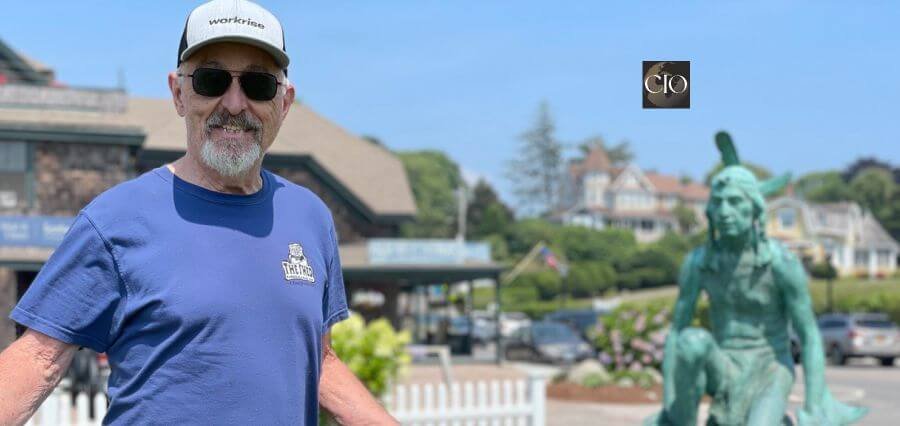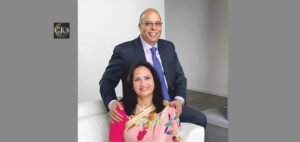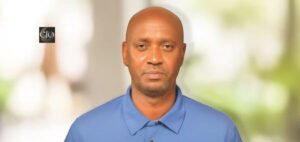Prof. Richard Larson has been a guiding force in transforming operations research from a niche academic discipline into a practical, impactful tool for public systems, city infrastructure, and everyday decision-making. Throughout his illustrious career at the Massachusetts Institute of Technology (MIT), Larson has demonstrated an unwavering commitment to merging theoretical analysis with real-world applications. His extensive work in urban operations, police patrol optimization, and educational innovation underscores a deep belief: that mathematics and modeling are powerful lenses through which society’s most pressing problems can be understood and addressed.
Through decades of research, teaching, and consulting, Prof. Larson has helped shape how communities manage critical functions—from law enforcement strategies to public transportation systems and resource allocation. As co-director of MIT’s Operations Research Center and the visionary behind initiatives like MIT BLOSSOMS, he exemplifies the modern scholar-practitioner—someone who not only contributes to the academic corpus but also actively improves the systems that govern our daily lives.
Richard Larson’s contributions extend well beyond academic honors and prestigious titles. He has cultivated a methodology grounded in model-based thinking, evidence-based planning, and field observation. His story is not merely one of intellectual rigor but also one of service—channeling the analytical sciences for the public good.
Discovering Operations Research: A Personal Awakening
Richard’s entry into the world of operations research was not a product of formal planning but of organic intellectual curiosity. With an early love for physics—his favorite science—and a lack of enthusiasm for biology, Prof. Richard Larson found himself captivated by the logical and universal nature of operations research. To him, this field felt like the “physics of everyday life,” as it offered a structured approach to analyzing how people navigate systems—from grocery store queues to urban traffic networks.
It was his faculty advisor, Prof. Alvin W. Drake at MIT, who first introduced him to operations research. Around this time, Prof. Richard Larson had a personal brush with crime, sparking an interest in policing systems. Encouraged by Professors Drake and Philip M. Morse, he collaborated with the Boston Police Department, dedicating over 200 hours to ride-alongs in patrol cars. These experiences provided firsthand insights that fueled his doctoral thesis, eventually published as “Urban Police Patrol Analysis”—a groundbreaking work that earned the prestigious Lanchester Prize in 1972 for the best publication in operations research.
Making Academia Work for Society
Prof. Larson’s academic journey was never confined to lecture halls or theoretical work. He sought to blend rigorous research with meaningful, real-world applications. This vision materialized in the formation of Public Systems Evaluation, Inc.—an off-campus, nonprofit consulting initiative that later evolved into the ENFORTH Corporation. The organization became a real-world laboratory for Prof. Richard Larson and his students, who often based their master’s theses on the hands-on experiences they gained through this work.
These initiatives exemplified Larson’s belief that the divide between academia and application is an artificial one. Instead, he championed a model where students and scholars actively engaged with the communities and institutions they studied. His work in public systems evaluation brought MIT’s intellectual capital into close alignment with municipal needs, transforming academic insight into practical impact.
Launching MIT BLOSSOMS: Democratizing Education Worldwide
Among Prof. Larson’s most celebrated initiatives is the creation of MIT BLOSSOMS (Blended Learning Open Source Science or Math Studies) in 2008. Aimed at democratizing access to quality education, BLOSSOMS provides free, open-source video lessons to learners around the world. Available on platforms like YouTube, these lessons have reached audiences in dozens of countries, often in under-resourced educational settings.
Prof. Richard Larson credits the program’s success to the dedication of the BLOSSOMS team, whose work continues to influence the global educational landscape. The project reflects his enduring commitment to knowledge dissemination and equity. At a time when digital education was still nascent, BLOSSOMS positioned MIT as a leader in open learning, and Prof. Richard Larson as a pioneer in applying technology to expand educational reach.
Integrating Theory with Real-World Application
Throughout his career, Prof. Richard Larson has rejected the notion that theoretical work should remain within academic silos. He frequently cites historical examples—like A.K. Erlang’s queueing theory in telecommunications and the wartime development of Search Theory—to illustrate how operations research has always been rooted in solving practical problems.
Larson’s own work continues this tradition. From optimizing urban policing strategies to improving infrastructure design, his projects begin with careful observation, evolve through rigorous modeling, and culminate in actionable insights. This integrated approach has ensured that his research not only advances scholarly understanding but also delivers measurable benefits to communities.
Staying Current in an Evolving Field
Even as operations research expanded into a wide array of specialized subfields, Prof. Richard Larson remained focused on modeling, particularly probabilistic systems. While acknowledging that no individual can stay current across the entire discipline, he maintained his deep engagement with model development—finding enduring fascination in the challenge of translating real-world complexity into analytically tractable systems.
This dedication persisted beyond his formal retirement, underscoring his lifelong passion for learning and problem-solving. For Prof. Richard Larson, modeling is not merely a technical exercise; it is a creative and intellectual endeavor that continues to captivate his imagination.
Career Achievements and Recognition
Receiving the Lanchester Prize early in his career was a significant milestone, affirming the value of Larson’s focus on public systems and operational efficiency. But perhaps the highest professional honor came with his induction into the National Academy of Engineering (NAE)—a testament to the profound and lasting impact of his contributions.
These accolades, while deeply meaningful, reflect a larger narrative: that of a scholar who consistently used his expertise to improve the mechanisms by which society functions. Whether through academic writing, systems consulting, or public service, Larson’s work has consistently bridged the gap between knowledge and action.
Legacy in Education and Thought Leadership
In co-authoring the textbook “Urban Operations Research” with MIT’s Prof. Amedeo Odoni, Prof. Richard Larson created a foundational resource that continues to shape education in the field. The book’s extensive citations and multilingual translations attest to its influence—not only in urban planning contexts but in broader operations research curricula worldwide. In some cases, it has even been introduced in high school programs, expanding its reach to younger audiences.
Prof. Richard Larson envisions a future in which students adopt a multidisciplinary, model-based approach to problem-solving. He likens his own methodology to that of an applied physicist: observe phenomena, build mathematical models, test hypotheses, and refine conclusions through iteration. This scientific rigor, he argues, is essential in generating solutions that are both effective and adaptable.
Advice for Aspiring Operations Researchers
One of Larson’s central pieces of advice to future researchers and leaders is to engage directly with the systems they intend to analyze. Real-world exposure, he contends, is indispensable. Observing operations on-site, conversing with key personnel, and immersing oneself in the environment enables a level of understanding that pure abstraction cannot provide.
This philosophy informed his leadership at ENFORTH Corp. and his mentoring at MIT. He consistently encouraged his students to move beyond theoretical models and embrace the messiness of real-world systems. Only then, he believes, can operations research fulfill its true potential—to make society smarter, more efficient, and more humane.
Promoting Model Thinking in Daily Life
Now in retirement, Prof. Larson is far from slowing down. His focus has shifted toward bringing the benefits of model-based thinking to a wider audience. His latest book, “MODEL THINKING For Everyday Life: How to Make Smarter Decisions,” published in 2023 by INFORMS, offers structured tools for decision-making across various life domains.
Larson’s outreach includes media engagements and even a digital billboard feature in Times Square, courtesy of Marquis Who’s Who. These efforts aim to highlight the everyday relevance of analytical thinking—not just in engineering or public policy, but in daily choices, career planning, and problem-solving.
In promoting model-based thinking beyond academia, Prof. Richard Larson reaffirms a central tenet of his life’s work: that structured, analytical reasoning is not reserved for scholars or engineers—it is a universally applicable tool for navigating an increasingly complex world.
A Lasting Legacy of Practical Intelligence
Prof. Richard’s career stands as a blueprint for what it means to lead with both intellect and impact. From urban patrol routes to global classrooms, his work embodies the rare union of deep academic insight and tangible societal benefit. He has not only shaped the field of operations research but has also redefined how it can serve the public.
As the world faces increasingly complex logistical, social, and environmental challenges, the need for thinkers like Prof. Richard Larson—those who can model, teach, and lead—has never been more urgent. His legacy is a powerful reminder that when theory meets application, innovation thrives, and society prospers.




